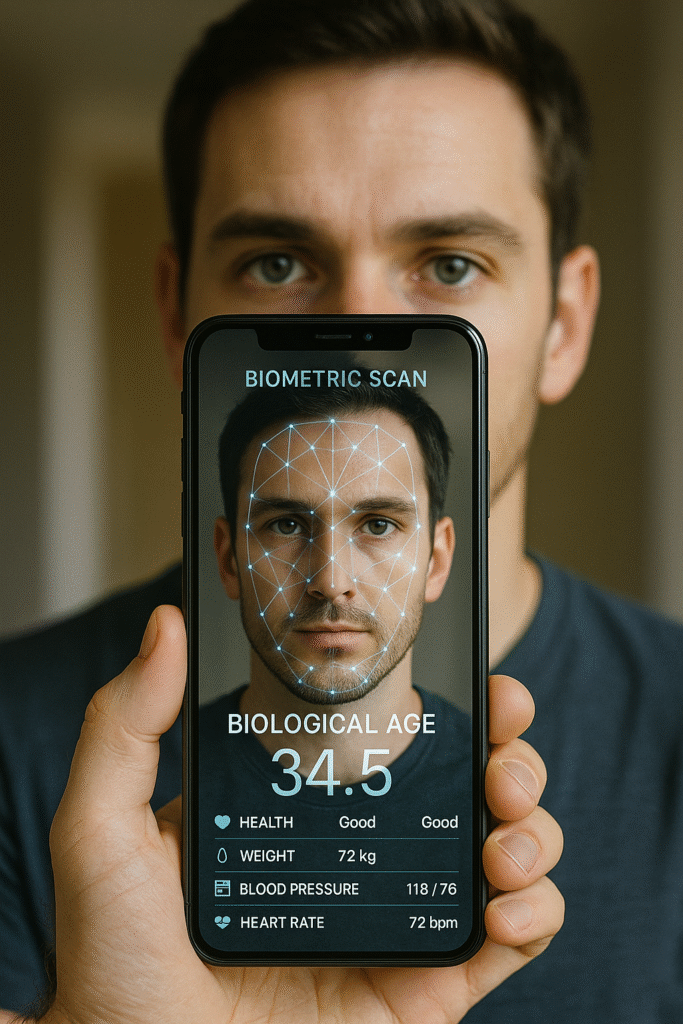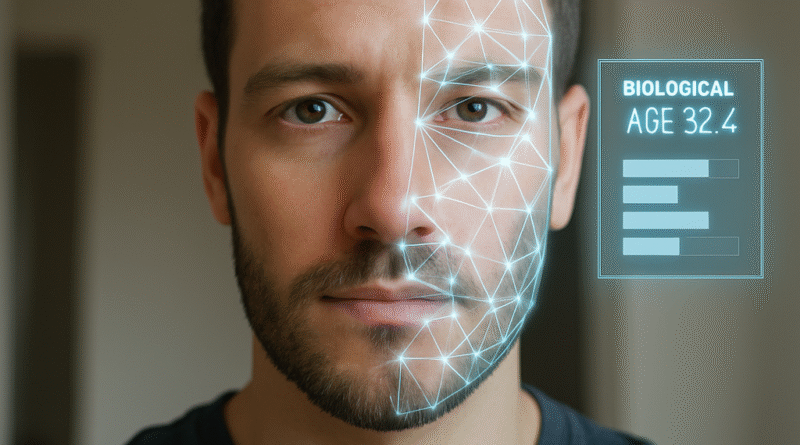How AI Can Estimate Your Biological Age and Predict Cancer Survival
Is it possible to estimate your lifespan from a photo?
That question just became more real. A team of researchers has developed an artificial intelligence tool that can predict how fast you're aging and even estimate your risk of dying from cancer just by analyzing a photo of your face.
This breakthrough, recently published in The Lancet Digital Health, could mark the beginning of a new era in personalized and preventive healthcare.
TL;DR:
A groundbreaking AI tool named FaceAge, developed by researchers at Mass General Brigham and Harvard Medical School, can estimate biological age and predict cancer survival odds using a facial photo. Published in The Lancet Digital Health, this innovation could reshape personalized medicine, early diagnostics, and longevity science. View the study
From Selfie to Survival Odds
FaceAge uses deep learning trained on more than 59,000 facial images to assess biological age, which is a measure of internal aging that does not always match the number on your driver's license. In clinical trials with over 6,000 cancer patients, FaceAge’s predictions for survival outcomes even outperformed those made by experienced physicians. Source
Why Biological Age Is More Important Than Chronological Age
Your chronological age reflects how many years you've lived. Your biological age reflects how quickly your body is deteriorating on the inside.
Two people might both be 45 years old, yet one could have the heart, skin, and recovery capacity of someone in their thirties, while the other shows signs of accelerated aging.
According to the National Institute on Aging, biological age often correlates more strongly with chronic disease risk than actual age.
We explore this concept further in our article on cold exposure and sauna use for healthy aging.
How the AI Works
FaceAge uses convolutional neural networks, the same technology used in facial recognition, to examine wrinkles, skin tone, and facial structure. These signals are then used in survival prediction models that were trained on real-world patient outcomes.
Unlike expensive lab tests or medical scans, this system requires only a clear facial photo.
“This facial biomarker provides a low-cost, non-invasive, and scalable way to estimate biological aging and patient risk,” said Hugo Aerts, co-senior author of the study and director of the Artificial Intelligence in Medicine program at Mass General Brigham. Source

A New Era for Preventive Health
This is not just a novelty. AI tools like FaceAge may help with:
- Detecting early signs of disease before symptoms appear
- Enabling remote health monitoring through smartphones
- Offering personalized longevity feedback based on visual aging cues
While the potential is exciting, this new category of tech also introduces privacy concerns and raises questions about ethical use of facial data.
If you're optimizing your own aging process, read our guide to strength training for a longer life.
Can You Reverse Your Biological Age?
Yes, and evidence supports this idea. A study published in Aging found that an eight-week lifestyle program involving diet, sleep, and stress reduction reduced participants’ biological age by more than three years. Source
Here are several proven tools for reducing biological age:
- Eating anti-inflammatory, nutrient-rich foods
- Training regularly with a focus on strength and mobility
- Managing stress through nature, breathwork, or meditation
- Using cold exposure and sauna to improve cellular resilience (Cold therapy guide)
- Relearning boredom tolerance to reduce chronic stimulation
⚠️ What to Watch Out For
While FaceAge shows strong potential, a few limitations are worth noting:
- Accuracy may vary across demographics and image quality
- It is not a replacement for full medical testing
- Concerns remain around privacy, facial data storage, and potential insurance misuse
For more on hidden aging risks, check out our recent article on ultra-processed foods and their link to cellular damage.
🧭 Final Thought
If your phone could reveal how old your body truly is on the inside, would you want to know?
That moment is already here. What you choose to do with that knowledge could shape how long and how well you live.
✍️ Written & fact-checked by the Fitsnip editorial team
Last reviewed: May 19, 2025
📚 Sources:
J.D. Wilson is an Integrative Health Specialist, Certified Meditation Teacher, and author of The Comfort Trap: The Quiet Cost of an Unchallenged Life. He founded Fitsnip.com to translate complex research into practical systems for longevity and mental clarity.
About: https://fitsnip.com/about


